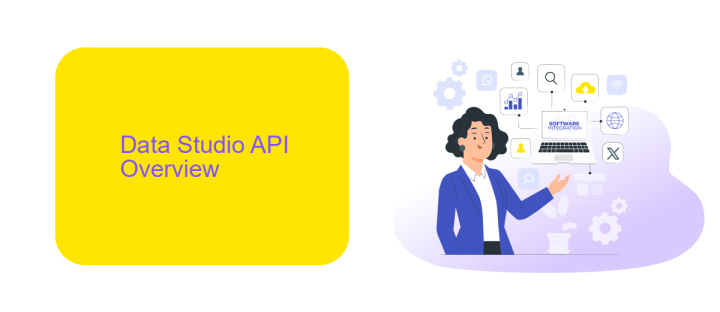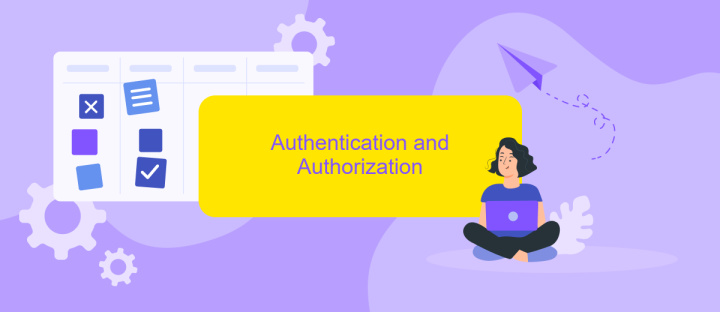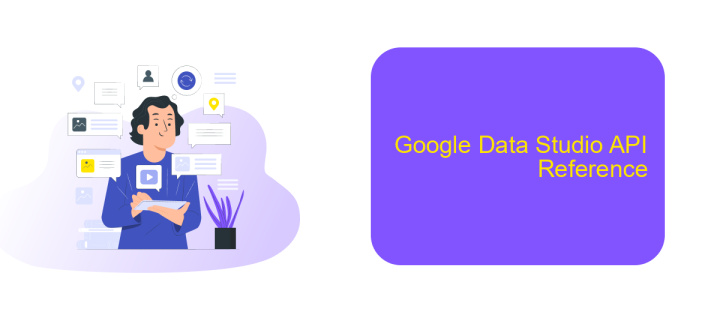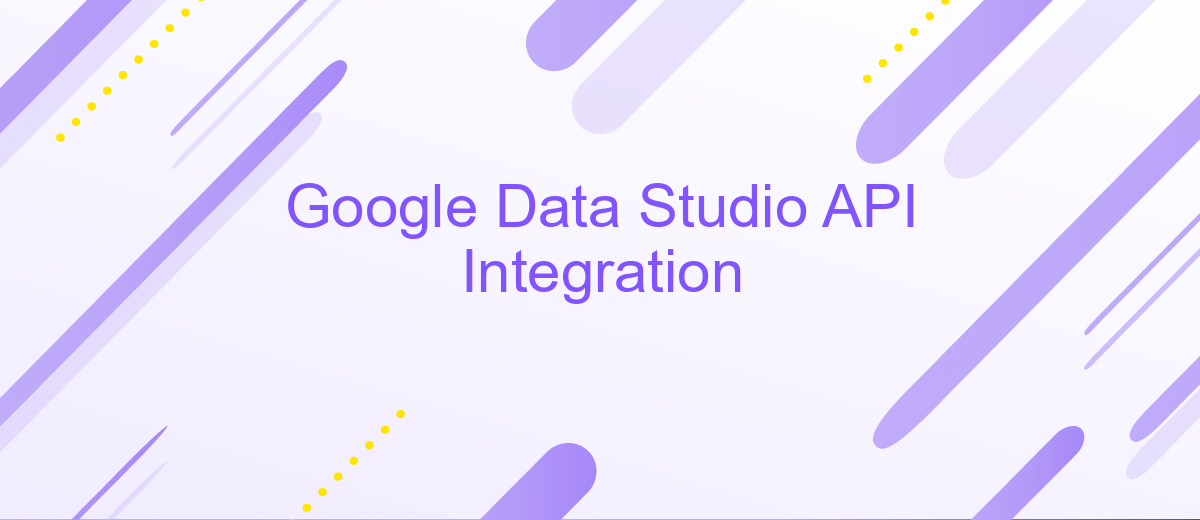Google Data Studio API Integration
Google Data Studio API Integration enables businesses to seamlessly connect various data sources and create dynamic, interactive reports and dashboards. This powerful tool allows users to automate data fetching, streamline reporting processes, and gain deeper insights into their data. In this article, we will explore the steps and best practices for integrating Google Data Studio API to enhance your data visualization capabilities.
Introduction
Google Data Studio API Integration enables users to automate and streamline data visualization processes by connecting various data sources directly to Google Data Studio. This powerful feature allows for dynamic reporting and real-time data updates, essential for data-driven decision-making.
- Automate data imports from multiple sources
- Customizable dashboards and reports
- Real-time data synchronization
- Enhanced data accuracy and reliability
- Seamless integration with third-party tools
One of the efficient ways to set up these integrations is through services like ApiX-Drive. ApiX-Drive simplifies the process by offering a user-friendly interface to connect Google Data Studio with numerous applications and data sources without requiring extensive coding skills. By leveraging such tools, businesses can save time, reduce errors, and ensure their data is always up-to-date and ready for analysis.
Data Studio API Overview

Google Data Studio API provides a powerful way to automate and enhance your data visualization processes. By leveraging the API, you can programmatically manage and manipulate your data sources, reports, and user permissions. This allows for seamless integration with other tools and platforms, ensuring that your data is always up-to-date and your reports are consistently accurate. The API supports various operations such as creating, updating, and deleting data sources, as well as generating access tokens for secure data handling.
For those looking to simplify the integration process, services like ApiX-Drive can be highly beneficial. ApiX-Drive offers a user-friendly interface to set up and manage integrations without the need for extensive coding knowledge. This service can help automate data transfers between Google Data Studio and other applications, making it easier to maintain real-time data synchronization. By using ApiX-Drive, businesses can save time and reduce the complexity involved in managing multiple data sources and reporting tools.
Authentication and Authorization

To integrate Google Data Studio with other services via API, it is crucial to set up proper authentication and authorization. This ensures that only authorized users and applications can access and manipulate your data, safeguarding it from unauthorized access.
- First, create a project in the Google Cloud Console and enable the Google Data Studio API.
- Next, generate OAuth 2.0 credentials, including a client ID and client secret.
- Configure the OAuth consent screen to inform users about the data access permissions your application requires.
- Use the generated credentials to obtain an access token, which will be used to authenticate API requests.
For a seamless integration process, consider using ApiX-Drive, a service that simplifies API connections and automates data workflows. By leveraging ApiX-Drive, you can streamline the authentication and authorization steps, making it easier to set up and maintain your Google Data Studio API integration.
Google Data Studio API Reference

Google Data Studio API provides a robust interface for programmatically interacting with your Data Studio assets. This API allows developers to automate reporting tasks, manage data sources, and integrate Data Studio with other applications. By leveraging the API, you can enhance the functionality of your dashboards and streamline your data workflows.
To get started, you need to set up a project in the Google Cloud Console and enable the Data Studio API. Authentication is handled via OAuth 2.0, ensuring secure access to your Data Studio resources. Familiarize yourself with the API's endpoints and methods to effectively utilize its capabilities in your projects.
- Create and manage reports and data sources
- Automate report generation and updates
- Integrate with other Google services like Google Analytics and BigQuery
- Use third-party services like ApiX-Drive for seamless integration
Using tools like ApiX-Drive, you can simplify the integration process by connecting Google Data Studio with various third-party applications. This helps in automating data transfer, reducing manual efforts, and ensuring that your reports are always up-to-date with the latest information.
- Automate the work of an online store or landing
- Empower through integration
- Don't spend money on programmers and integrators
- Save time by automating routine tasks
Additional Resources
For those looking to dive deeper into Google Data Studio API integration, there are numerous resources available to enhance your understanding and capabilities. The official Google Data Studio Help Center offers comprehensive guides and tutorials that cover everything from basic setup to advanced data manipulation techniques. Additionally, the Google Developers website provides detailed API documentation, code samples, and best practices to help you get the most out of your integration efforts.
If you're seeking tools to simplify the integration process, consider using services like ApiX-Drive. ApiX-Drive offers a user-friendly interface and robust features to automate data transfers between Google Data Studio and various other platforms. This can be particularly beneficial for those who need to integrate multiple data sources without extensive coding knowledge. Moreover, community forums and online courses can provide valuable insights and real-world examples to further enhance your integration skills.
FAQ
How do I start using the Google Data Studio API?
What can I do with the Google Data Studio API?
How do I authenticate with the Google Data Studio API?
Can I automate Google Data Studio report generation?
What tools can help me integrate Google Data Studio API without extensive coding?
Time is the most valuable resource in today's business realities. By eliminating the routine from work processes, you will get more opportunities to implement the most daring plans and ideas. Choose – you can continue to waste time, money and nerves on inefficient solutions, or you can use ApiX-Drive, automating work processes and achieving results with minimal investment of money, effort and human resources.


